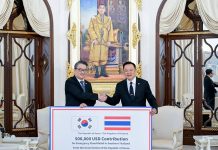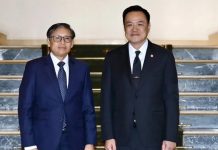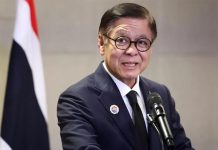BANGKOK, 12 February 2013 First Deputy Speaker of the House of Representatives Chaoren Chankomol met with Puea Thai party leader Jarupong Ruangsuwan on Monday to propose and gather ideas on the amnesty bill. He earlier talked with the representatives from the People’s Alliance for Democracy (PAD), the United Front for Democracy against Dictatorship (UDD), and the Democrat party.
According to Mr Charoen, he told the Puea Thai leader that talks with various groups had suggested that the amnesty law should, firstly, grant immediate amnesty to ordinary participants of political protests while subjecting protest leaders’ eligibility for amnesty to the consideration of an independent committee. Secondly, the law should take the form of a legal act to be passed by parliament, rather than a decree issued by the cabinet, he said.
Meanwhile, a group of 40 senators, most of whom appointed, expressed opposition to an amnesty law. They said the law drafts proposed so far had been vague as to who would be considered protest “participants” and who would be considered protest “leaders”. In addition, the senators said they would oppose any law granting amnesty to lese-majeste prisoners.
So far three detailed versions of the amnesty law have been proposed by three groups – the Independent National Rule of Law Commission, the United Front for Democracy against Dictatorship (UDD), and the group of legal scholars called “Nitirat”. All the three versions of the law would grant immediate amnesty to those convicted of violating the Emergency Decree excluding protest leaders and authorities who gave orders.
It is unclear whether any of the three proposed drafts would grant amnesty to lese-majeste prisoners although a legal scholar from Nitirat has suggested that lese-majeste prisoners should be considered “political prisoners”, and, therefore, covered by the bill.




